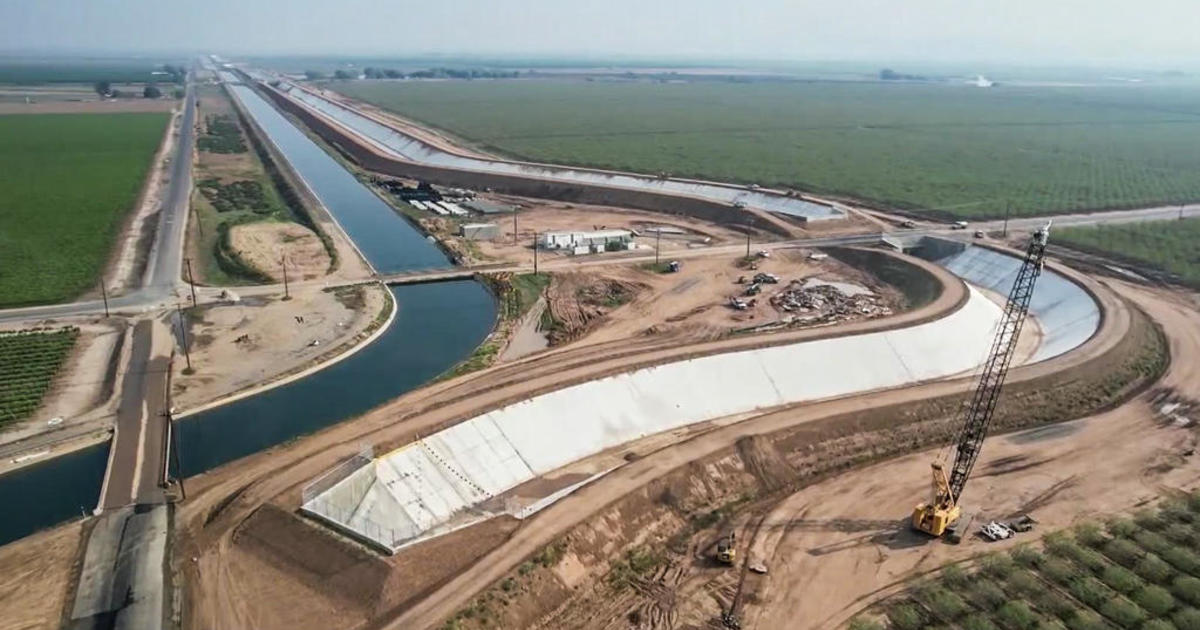California Sanctuary State Bill Changed; Sheriffs Remain Opposed
SACRAMENTO (AP) -- California sheriffs said Tuesday they remain opposed to legislation that would put new restrictions on their interactions with federal immigration authorities despite changes demanded by Gov. Jerry Brown that significantly scaled back the bill's reach.
California police chiefs, meanwhile, dropped their opposition saying their concerns were addressed. Sheriffs, who oversee jails, said the updated bill will preserve many important powers for them but could still endanger the public by limiting their ability to cooperate with immigration agents looking to deport people being released from custody.
"We're passing laws to not communicate with other governmental agencies and I just struggle with that," Kings County Sheriff David Robinson, a vocal critic of the bill, told The Associated Press. "I'm still adamantly opposed to the bill. It does nothing to protect immigrants, whether legal or illegal. It only protects criminals."
The bill, SB54, was introduced in the aftermath of President Donald Trump's election as California Democrats looked to protect immigrants fearing the new Republican president would ramp up a deportation dragnet.
The final version prohibits law enforcement officials from asking about a person's immigration status or participating in immigration enforcement efforts. The bill prohibits law enforcement officials from being deputized as immigration agents or arresting people on civil immigration warrants. It would allow immigration agents to interview people in custody, though they can no longer have permanent office space in jails.
In its statement, the sheriffs association said law-enforcement agencies don't do most of that anyway.
"There's so much in this bill that prohibits us from doing stuff we already don't do," Kern County Sheriff Donny Youngblood, another outspoken critic, said in a phone interview. "It's a horrible bill that is now made where it has a minimal impact on my county."
Cynthia Buiza, executive director of the California Immigrant Policy Center, acknowledged local law enforcement may already be following many of the bill's provisions but that it was significant to enshrine them in law.
"It's not perfect but there are some reassuring things," she said Tuesday. "This is a step in the right direction."
The bill, written by Senate President Pro Tem Kevin de Leon, D-Los Angeles, originally would have severely limited the authority for law enforcement officers to cooperate and share information with immigration agents.
With changes announced Monday, which won Brown's support for the legislation, it will now allow local officers to transfer immigrants to federal authorities if they've been convicted of one of some 800 crimes, mostly felonies or misdemeanors that can be charged as felonies.
U.S. Immigration and Customs Enforcement agents will also be allowed to access state law enforcement databases — something de Leon sought to prohibit in his original proposal.
Immigrant advocacy groups lobbied hard for the bill and pressured de Leon not to water it down, but they've cheered the compromise bill. In announcing the agreement with Brown, DeLeon's office issued statements of support from many immigrant advocacy groups. Pablo Alvarado, executive director of the National Day Laborer Organizing Network, said the new version "constitutes a victory for migrants."
Thomas A. Saenz, president and general counsel of the Mexican American Legal Defense and Educational Fund, said the bill was a "timely and important step" toward divorcing the state from immigration enforcement and "will serve to protect communities throughout California."
The bill is expected to be considered in the Assembly and Senate on Friday.
Meanwhile, Brown and top lawmakers announced Tuesday that they plan to spend $30 million helping young immigrants with legal services and college financial aid.
The announcement comes in response to President Donald Trump's decision to end a program that gives temporary protection from deportation to people brought to the country illegally as children or by parents who overstayed visas.
© Copyright 2017 The Associated Press. All Rights Reserved. This material may not be published, broadcast, rewritten or redistributed.



